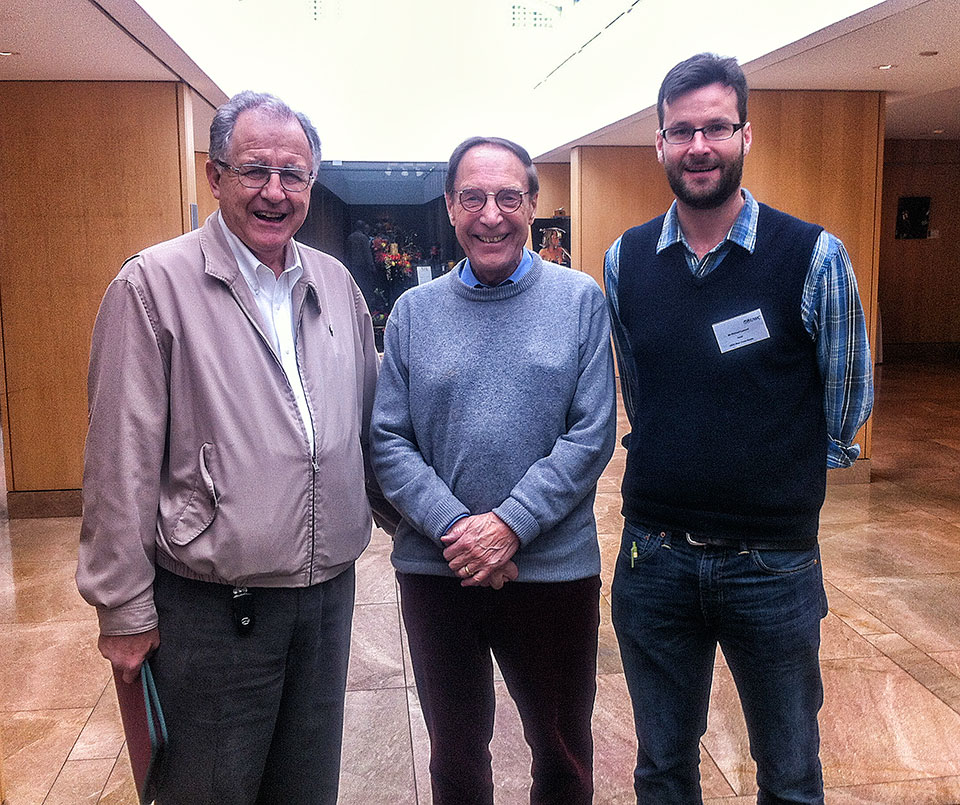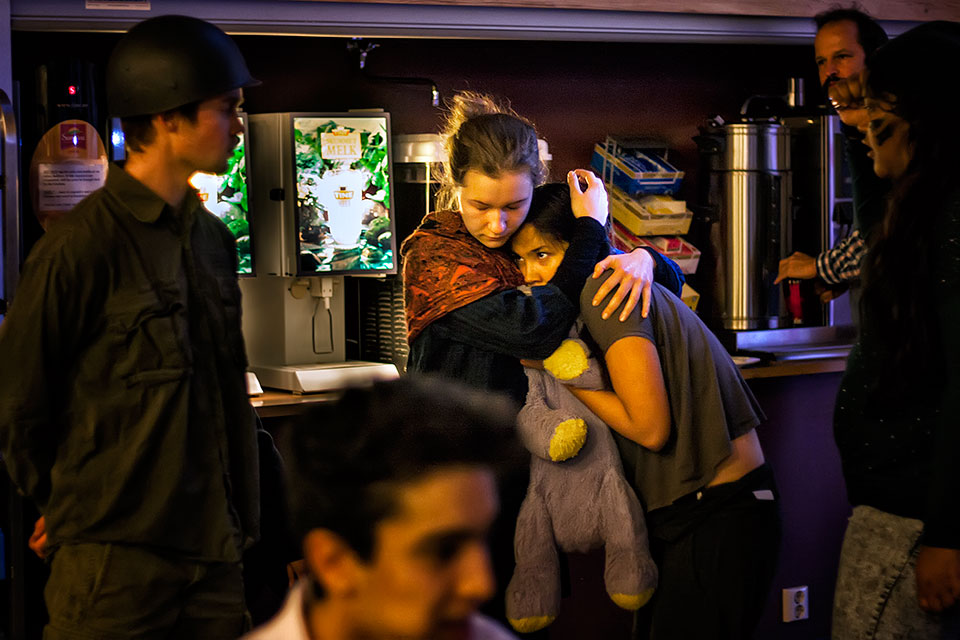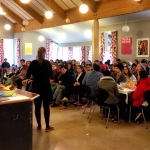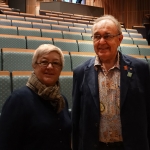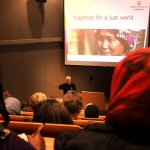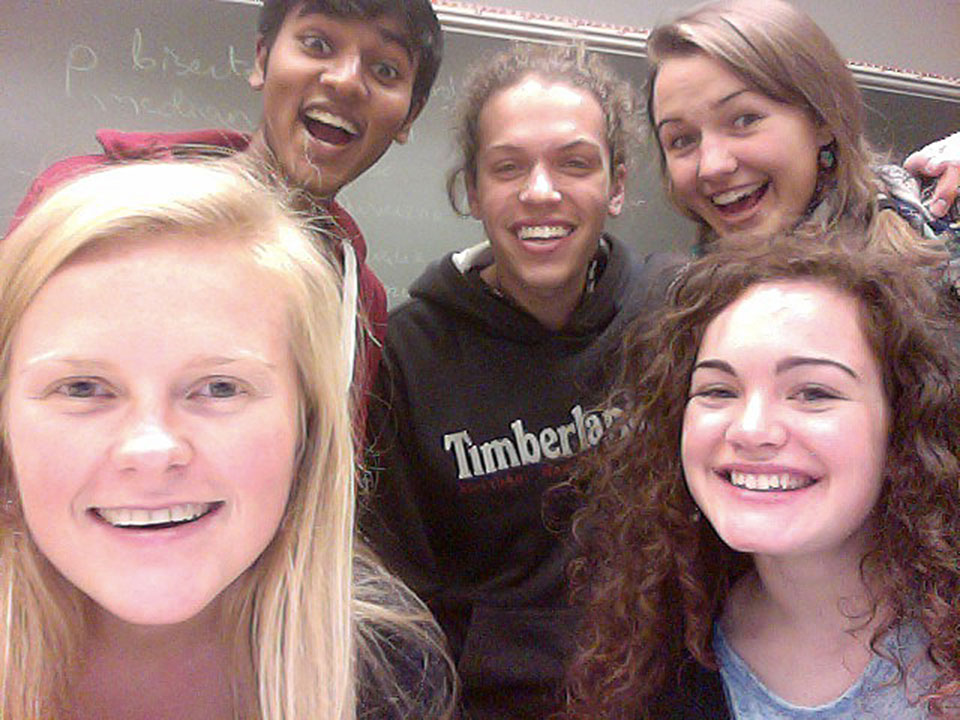UWC Meetings in Canada
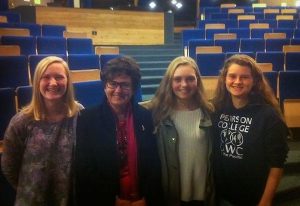 Last week, the annual UWC Heads, International Council and Boards meetings were held at Victoria and Pearson College on Vancouver Island. Many interesting discussions were held during the conference – from distinctiveness and quality to alumni impact, from admissions to post 2015 planning.
Last week, the annual UWC Heads, International Council and Boards meetings were held at Victoria and Pearson College on Vancouver Island. Many interesting discussions were held during the conference – from distinctiveness and quality to alumni impact, from admissions to post 2015 planning.
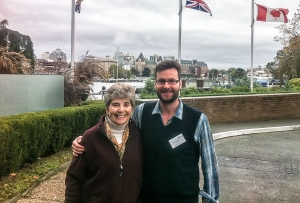 UWC Red Cross Nordic was represented by its members of the UWC International Council: Pär Stenbäck (Chair of RCN’s Council), Tove Veierød (Chair of RCN’s Board), and Richard Lamont (RCN’s Rektor). The meeting also gave our three representatives the opportunity to connect with Nordic students at Pearson College and Tony and Ann Macoun, the founding Rektor of UWC RCN and his wife. Both Tony and Ann made an extraordinary contribution in terms of vision and infrastructure to what RCN is today. Tony has recently been appointed Chair of the Pearson College Board and is delighted to be back contributing to our sister College, of which he was formerly Director. We wish him the very best in this new role and look forward, we hope, to welcoming Tony and Ann back to the College for our 20th anniversary celebration in September 2015.
UWC Red Cross Nordic was represented by its members of the UWC International Council: Pär Stenbäck (Chair of RCN’s Council), Tove Veierød (Chair of RCN’s Board), and Richard Lamont (RCN’s Rektor). The meeting also gave our three representatives the opportunity to connect with Nordic students at Pearson College and Tony and Ann Macoun, the founding Rektor of UWC RCN and his wife. Both Tony and Ann made an extraordinary contribution in terms of vision and infrastructure to what RCN is today. Tony has recently been appointed Chair of the Pearson College Board and is delighted to be back contributing to our sister College, of which he was formerly Director. We wish him the very best in this new role and look forward, we hope, to welcoming Tony and Ann back to the College for our 20th anniversary celebration in September 2015.
Global Concerns
Global Concern Days at the College use invited guest speakers, workshops and student-developed projects to broaden and deepen the understanding of participants about a particular issue. On October 27th, we had the Humanitarian Global Concern. With two months of planning by the organizing team of the students, supervised by the staff, the day focused on the theme of ‘Children of War and Crime’.
- Explaining the Poverty Banquet
- Jostein By with teacher Maria Teresa Julianello
- Anders Thorheim presenting in the auditorium
The organizing team invited four guest speakers – Jostein By (the Rotary Head from Førde), Kirsti , from the A21 campaign, Gunnar Kartveit (Regional Consultant, Kirkensnodhjelp) and Anders Thorheim (Oslo Red Cross office) who was here to talk on International Humanitarian Law as part of the requirement for the Red Cross Diploma. It was good to have these speakers who added their professional expertise and knowledge to the day by leading presentations and workshops.
During lunch time, the whole student body participated in a role-play poverty banquet. Students were divided into low, middle and higher class: the lower class was served porridge, while the high class – only 25% of the students – feasted on chicken and pesto pasta. Though not exactly fun at the time, the lunch served as a successful reminder to us all of how many people struggle for food on a daily basis.
Disruptive Innovation
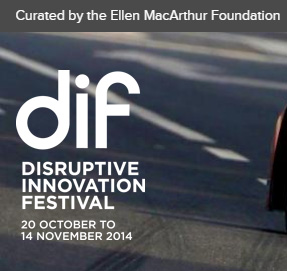 On the 22nd of October, five students from RCN, participated in an online panel discussion with students from twelve different UWCs. The debate was facilitated by the Ellen MacArthur Foundation’s Disruptive Innovation Festival, which aims to bring together thought-leaders, entrepreneurs, businesses, makers, learners and doers to catalyse system-level change for a future economy. The overarching topic of the discussion was revolutionizing education in the United World Colleges, and we were presented with the guiding question “What would the ideal education for changemakers look like?”. In light of this, we explored and discussed education with respect to the UWC mission statement, and how the current system might be improved or adapted in order to promote engagement and learning among students.
On the 22nd of October, five students from RCN, participated in an online panel discussion with students from twelve different UWCs. The debate was facilitated by the Ellen MacArthur Foundation’s Disruptive Innovation Festival, which aims to bring together thought-leaders, entrepreneurs, businesses, makers, learners and doers to catalyse system-level change for a future economy. The overarching topic of the discussion was revolutionizing education in the United World Colleges, and we were presented with the guiding question “What would the ideal education for changemakers look like?”. In light of this, we explored and discussed education with respect to the UWC mission statement, and how the current system might be improved or adapted in order to promote engagement and learning among students.
As a result of reflecting on our personal experiences related to the topic, we came up with several points we wished to put to the other students, in order to spark discussion. First of all, we emphasized the significance of the UWC’s role in cultivating global understanding, and how a UWC education should not only provide content but also serve an important purpose. We felt it was important to discuss how the current academic system, with the IB as the core, both helps us and perhaps also disadvantages us in achieving our mission statement. Some challenges we considered were the standardized assessment criteria, the lack of emphasis on individual initiative and in-depth projects as well as practical engagement in real-life situations. Therefore, we proposed discussing the development of a UWC-diploma, which would integrate aspects such as cultural understanding, conflict-resolution and environmental knowledge into the curriculum, and counteract the current tendency of students to view their academic life as separate from their residential experience. However, this would have to be the result of a thorough discussion in the whole UWC movement, and we hope to see an inclusive and lively debate on these issues in the time to come. Our proposals also included introducing a block system in which one subject is taught for a longer period of time, in order to allow students to focus and go more into depth.Additionally, we proposed creating a collective database of diverse resources accessible by all UWC students and teachers, as well as universalizing National Committee selection criteria and increasing academic and non-academic co-operation across the UWCs.
Overall, we found the debate both interesting and thought-provoking. The UWC students across the globe shared many interesting discussion points, and we hope to engage in further discussion as well as co-operation in the future. The debate concluded that we all need to engage in discussion about what the UWC movement is and what it could be in the future, and how we can adapt the academic component of UWC so that it encourages students to be active and engaged, and thus empower them to have a practical impact on their communities. We are grateful for the opportunity to engage in this debate, and we are excited to share and discuss this with the rest of the student body.
Elisabeth and Grete, on behalf the RCN student representatives
(Elisabeth, Grete, Zoe, Jonas, Izman)


